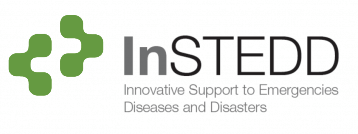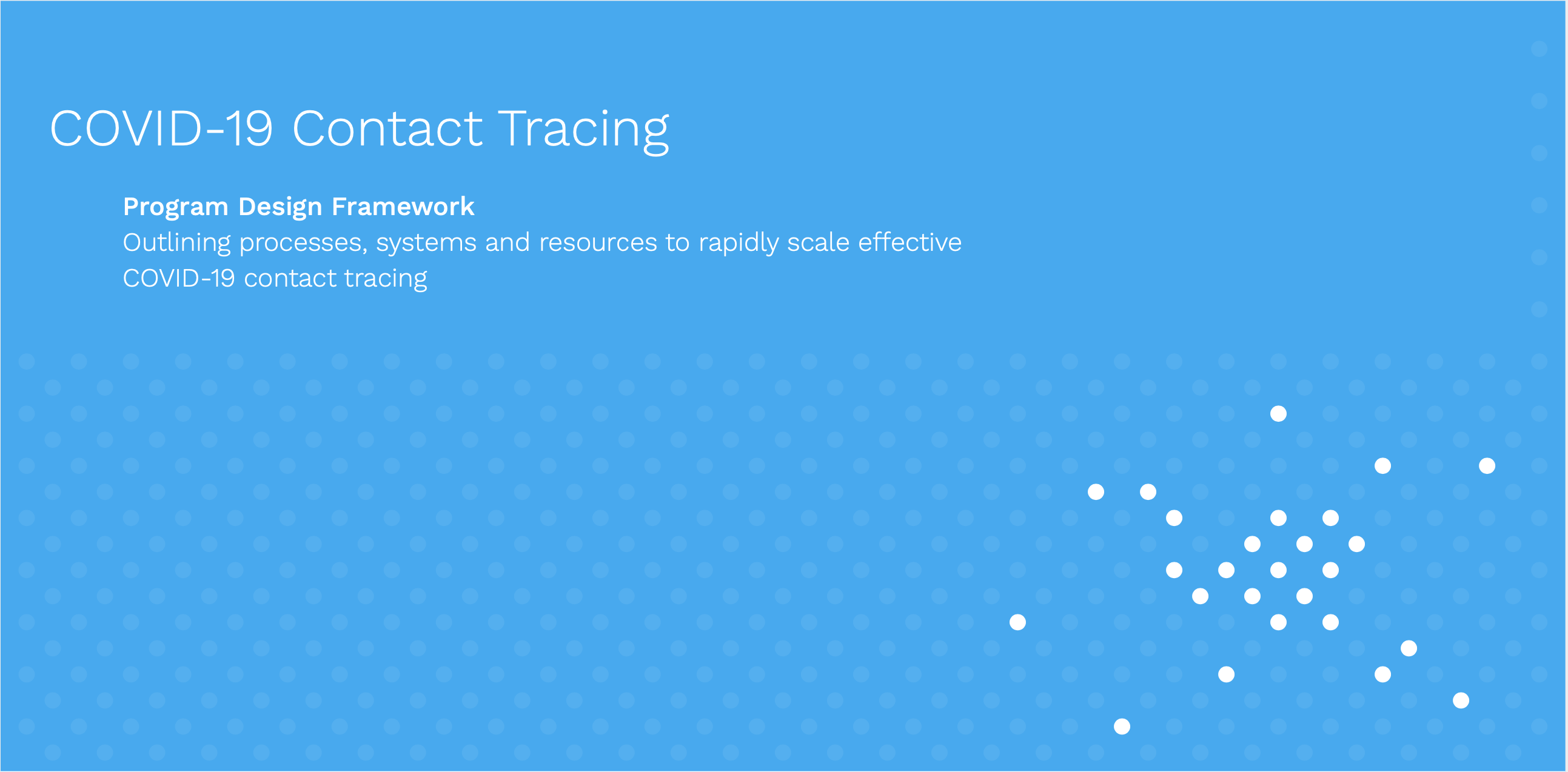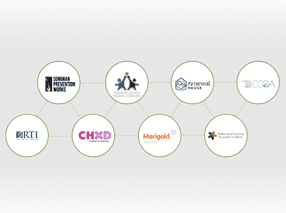Phnom Penh, Cambodia is a long way from my Harvard University classrooms in Cambridge, Massachusetts. This past winter break I traded the Charles River for the Mekong Basin for a working trip at the iLab Southeast Asia with the InSTEDD team there.
When I started working with InSTEDD back in May 2016 I had barely finished my first year of computer science education. By the time of my trip this past January I had completed several courses in software development, had experience working with InSTEDD’s open source tools, and was ready to build on my understanding of technology for social impact.
The project I traveled to work on was a data dashboard innovation for Cambodia’s National Disease Health Hotline, “115”, a free public number that allows anyone in Cambodia to report disease outbreaks and get health information by dialing 115.
I had been working on the project remotely for a few months, and this was my first chance to meet face-to-face with the iLab Southeast Asia developers and get feedback from officials at the Cambodian Ministry of Health CDC who were running the project.
The goal of the 115 data dashboard is to provide policymakers an easy way to view aggregated and visualized data on the hotline data including the number of reports made by the country’s 1,000+ healthcare workers each week. The challenge was to take the broad array of data and create a visual representation that could be quickly understood and acted upon.
Sitting next to the project team in-person allowed me to fine tune the dashboard’s visualizations and reporting features, and test real-time data collection features, which could display actionable information only seconds after the calls are completed. We also collaborated to build upon features designed to increase the security and anonymity of the data received.
By the end of my trip the dashboard felt nearly complete. A next step was identified to apply the same data visualization capabilities to other iLab Southeast Asia impact projects.
In addition to the coding work on the disease hotline dashboard I also had the opportunity to give a few talks at several amazing tech education and social impact events in Phnom Penh.
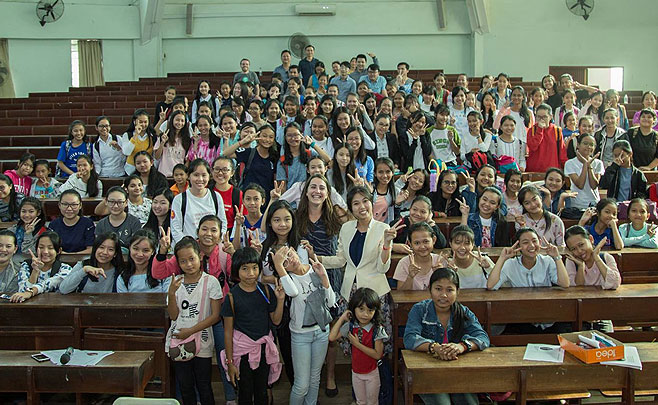
USAID’s Development Innovations / Photo by Chandy Mao
On one morning, I spoke with students at NIPTICT (Cambodia’s National Institute of Posts, Telecoms, and ICTs), and we had a great time comparing and contrasting our university experiences in Phnom Penh and Cambridge.
That same week I spoke to over 100 girls ages 10-18 at Phnom Penh’s chapter of Technovation, a program for introducing young women to social entrepreneurship and mobile application development.
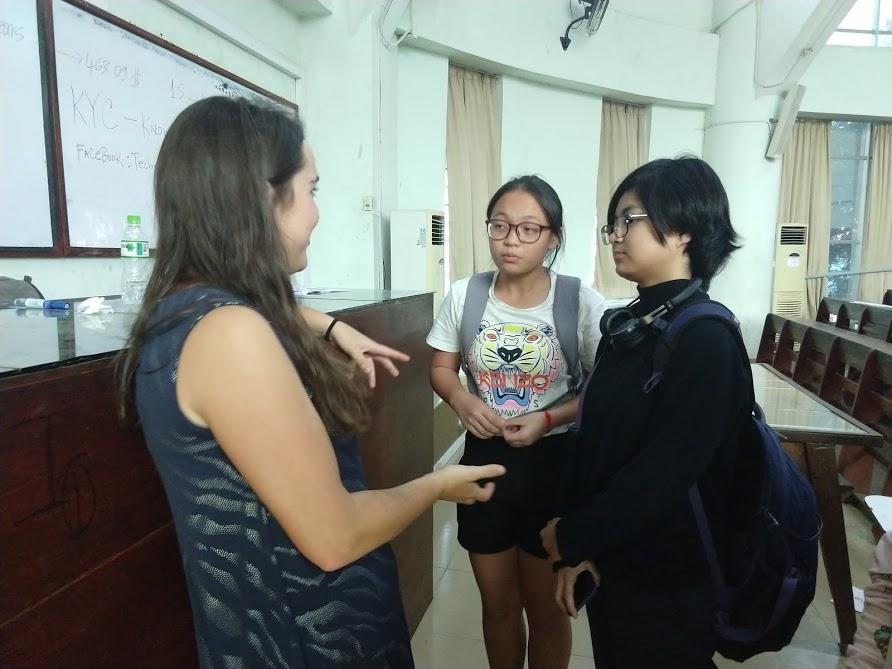
Chatting with students at Technovation
I also visited an AP Computer Science class at CIA FIRST International High School, which uses curriculum from Harvard’s well known introductory computer science course, CS50.
I had several meaningful takeaways after my two weeks in Cambodia.
First of all, I feel so lucky to experience working with a team of talented and motivated developers that welcomed me with open arms into their community. We worked long hours, but we also spent time sharing stories, meals, and laughs.
Meeting the bright and motivated students in Phnom Penh was a humbling reminder to be grateful for my own educational and work opportunities at Harvard. I am inspired by the determination of these young and talented people, and I look forward to reconnecting with them in the future.
Living in Phnom Penh for two weeks was my first experience working abroad– and I discovered that it is something that I hope to do a lot more of in the future. I strongly recommend to other students interested the field of information communication technology for development (ICT4D) to get outside the classroom for learning experiences in community based work.
Finally I would like to express my thanks to the InSTEDD and iLab Southeast Asia teams for helping to organize such an amazing experience.
In the weeks ahead my work on the disease data dashboard and other projects with InSTEDD will continue to progress, so check back on the InSTEDD blog and Twitter feed to see how things are developing!
